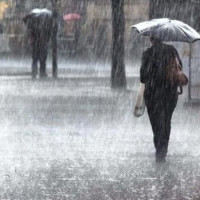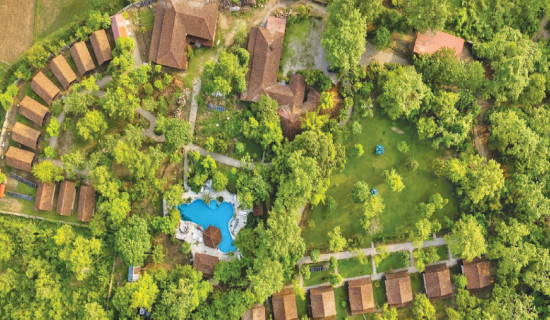- Saturday, 28 June 2025
Poems Of Soil Penned By A Refugee Poet
Certainly, poetry provides solace to a person who is trapped in the cage of big questions. Here we have poet Yatiraj Ajanabi, who is in such a difficult situation, and at the same time, he has been able to find insight into life through the means of poetry.
In this vein, we can call the under-review poetry book entitled "Kehi Yachchhyaprashnaharu" (some difficult questions like those that were asked to Yudhistir for the Pandava’s life by a demon king in the Mahabharat) a creation that is born out of pain felt by the poet for the existence of life.
Poet Ajanabi is a Bhutanese citizen by birth, but sadly, he suffers expulsion. So he throws himself volleys of questions, and his heart sweetens in poems to furnish replies to his curiosities. That is why he feels satisfied with this quest. He says he composes poems just to prove that he is Bhutanese.
How effective is his search for the nation and the soil in these poems? This question is valid in the context of the publication of the book. In fact, this is not a small, but around 300-page poetry book, and each page of it gives reasons why existential search is a huge issue not only for politics or systems but for the poet's own heart, too. How can one suppress one's own heart, which craves full expression?
The poet, therefore, seeks the attention of all through the medium of 101 poems from the under-reviewed collection. However, his themes, which he has pressed here for attention, may not be equal in their gravity and impacts because readers have their own backgrounds for feelings. In fact, all have their nation to love, but there are also some who are deprived of their existence. For example, the poet himself, who lives in the city of Adelaide in Australia, lacks an identity source: his birthplace, the country of Bhutan.
Now, let’s see how he expresses his feelings:
Good mother and nation are same Lung exhales in oven of heart Love of nation is limitless fire, Which, Beyond cover, always smolders.
Page, 54: Poem Kehi Yachchheprashnaharu In fact, this is not only one poem, where he has expressed his feelings for not being able to call Bhutan his nation. He seeks to decorate same sentiments also in other poems of this anthology like, "One evening, while remembering nation", "Story of a tree", "In remembrance of Wangmo" and "Destination lost person" etc.
Poet Ajanabi has presented this book as a collection of poems particularly to show his inner heart pain of compulsion to love as a refugee. But here the poet is open to talk existential crisis not only of refugees, but also for the whole mankind. So, the themes in it carry broader value because they touch hearts and make readers serious to think over various messages of life.
Page 130’s poem entitled "Meaningless Talks about Changes" is an example of this kind.
The poet writes: Oh! Stone like change talking revolutionaries Become a friend of old mother in the Facebook Her status changes moment by moment
Page, 133 in the book Change itself is more revolutionary than tall, talking individual revolutionaries, says the poet.
There are a few poems like "Rastriya Diwas!", "Bilashe Bange Ra Gamnange Ba" and "Bako Bakhan" in this anthology that are longer in length. But the poet has given a suitable flow to such large poems, too. He is decorative as well as skilled at dropping some effective messages in some accurate contexts in the longer poems.
With interwoven themes, this book’s thickness is as equal as the size of an epic, and the values that these poems seek to provide as a light of hope to mankind are also important.
In fact, the pain, that a refugee goes through or similar trouble faced by a bona fide citizen of a particular country may not be the same. But when big issues like existential crises happen in human civilization, the problem has equal gravity.
The praiseworthy thing about this collection is that there are plenty of common points that touch the human heart in the poems of "Kehi Yachchheprashnaharu".
In fact, the cause may be individual, but the appeal in the form of poetry may be global. This collection has been an example because of its decorative line of thoughts for championing matters beyond borders.
We can find such themes even in the poems "Baisamya" (inequality) and "Ronaldosanga Johannesburg Bimanasthalma" (with footballer Cristiano Ronaldo at Johannesburg Airport).
The poet expresses an inner wish to talk with Ronaldo in the poem: ‘The World Cup comes again and again. Your chance to win, too, comes But look at me; I am a defeated soldier for all times because I have lost my citizenship’, says the poet.
Undoubtedly, "Kehi Yachchheprashnaharu" is a set of big questions, which are asked in the beauty of poems. Poet Yatiraj Ajnabi deserves praise for the artistic expression of his thoughts in this book.
(Kafle is a former Deputy Executive Editor of this daily)















